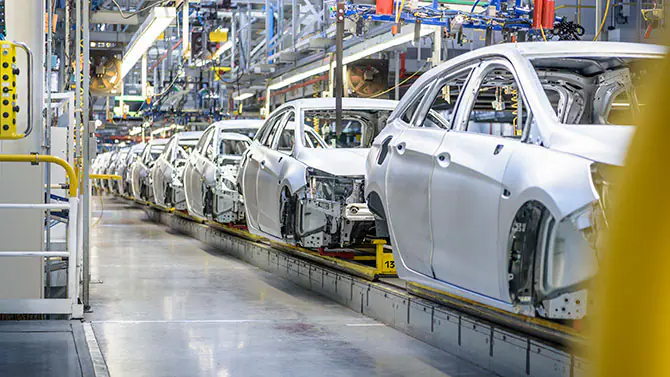The automotive industry stagnates in sustainability
Without an increased commitment to sustainability, the automotive industry risks missing the Paris climate targets - only 9 per cent of companies are leading the way on sustainability, according to a new study by Capgemini Research Institute.
Globally, for example, investment in sustainability initiatives has fallen from an average of 1.22 per cent of sales in 2019 to 0.85 per cent in 2022, it said. In Germany, too, investment has fallen, although, at 1.11 per cent, it is still well above the global average. Suppliers even invest a larger share of their turnover annually (0.93 per cent) than manufacturers (0.79 per cent).
The industry's implementation of key sustainability initiatives has also improved only slightly since 2019 and has even worsened in some areas. The current pace of the automotive sector's sustainability efforts will therefore not be sufficient to significantly reduce CO2 emissions and achieve the goals of the Paris Climate Agreement. This is the conclusion of a recent study by the Capgemini Research Institute, "Sustainability in Automotive: From Ambition to Action" (linked as PDF, English), for which almost 1100 executives of car manufacturers and suppliers worldwide were interviewed.
Current challenges such as the ongoing chip shortage and problems in the supply chain have led to a realignment of priorities, the study says. The European Green Deal and the Paris Climate Agreement, however, require the automotive industry to pursue more sustainable solutions to meet climate targets. The study shows that a large majority (70 per cent) of automotive companies focus on reducing total emissions across the value chain, including Scope 1, 2 and 3 emissions, from procurement to end-of-life processes. Two-thirds (64 per cent) of automotive companies expect to reduce CO2 emissions by 2040, and 57 per cent are going beyond ESG compliance to make sustainability a key business driver.
However, since 2018, the industry has only been able to reduce its overall greenhouse gas emissions by 5 per cent, with a 19 per cent reduction expected by 2030. At the current rate, automotive companies are not likely to be able to meet the overall Paris Climate Agreement target of net zero emissions by 2050.
The study shows that only a small group of companies (less than 10 per cent) can be described as sustainability strategy and implementation leaders. These companies ("Sustainability Leaders") have already reduced their emissions by an average of 9 per cent since 2018, compared to 5 per cent across the industry. They are expected to reduce their greenhouse gas emissions by 35 per cent by 2030 (compared to a projected average reduction of 19 per cent across the automotive industry).
At the same time, their operational efficiency is expected to improve by 22 per cent by 2026 (compared to 16 per cent for the rest of the companies over the same period). According to the study, this can be directly attributed to their sustainability initiatives, which contribute to greater transparency throughout the value chain. The leading companies were also able to increase their attractiveness for talent through their sustainability initiatives (18 per cent compared to 10 per cent for the rest of the companies).
